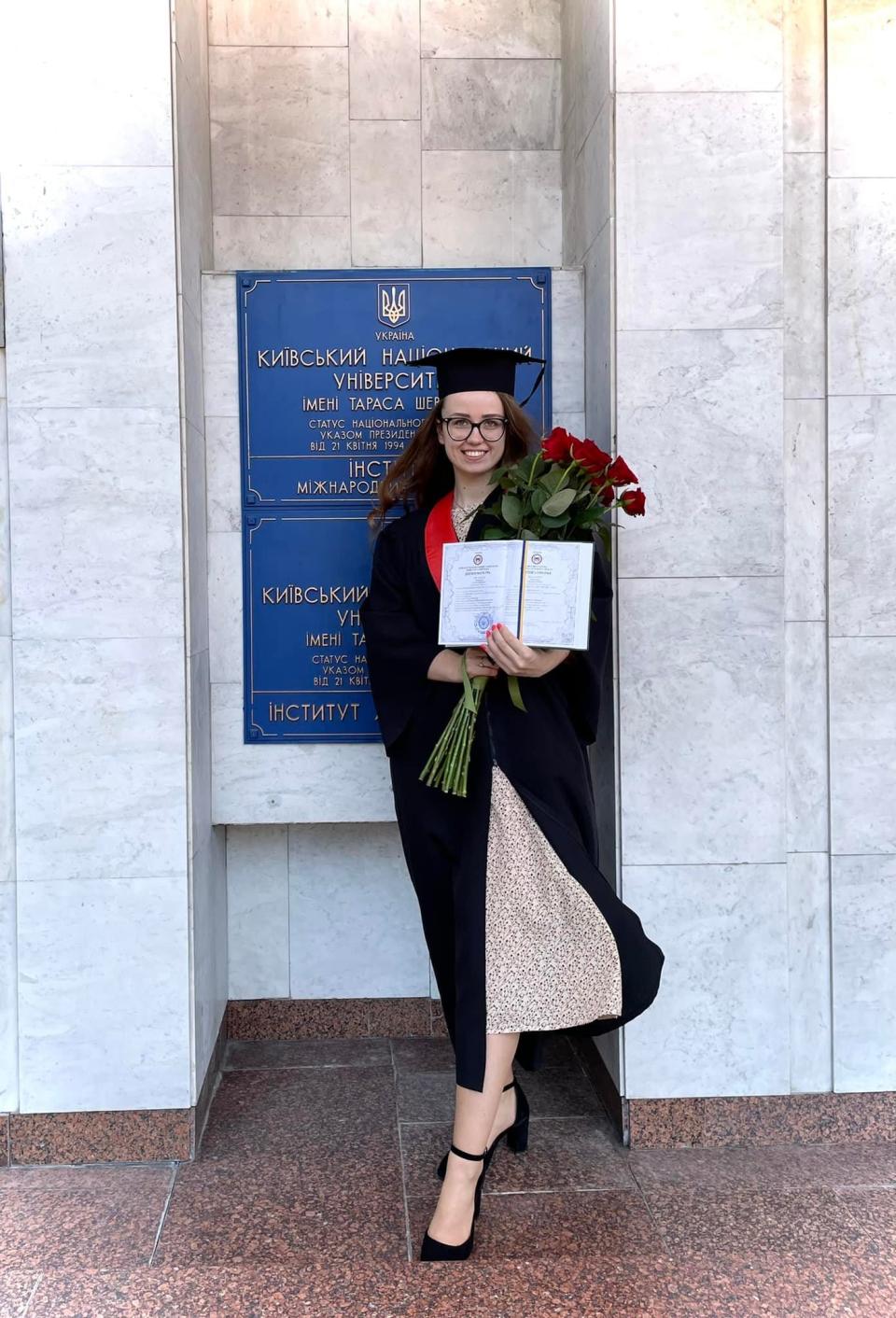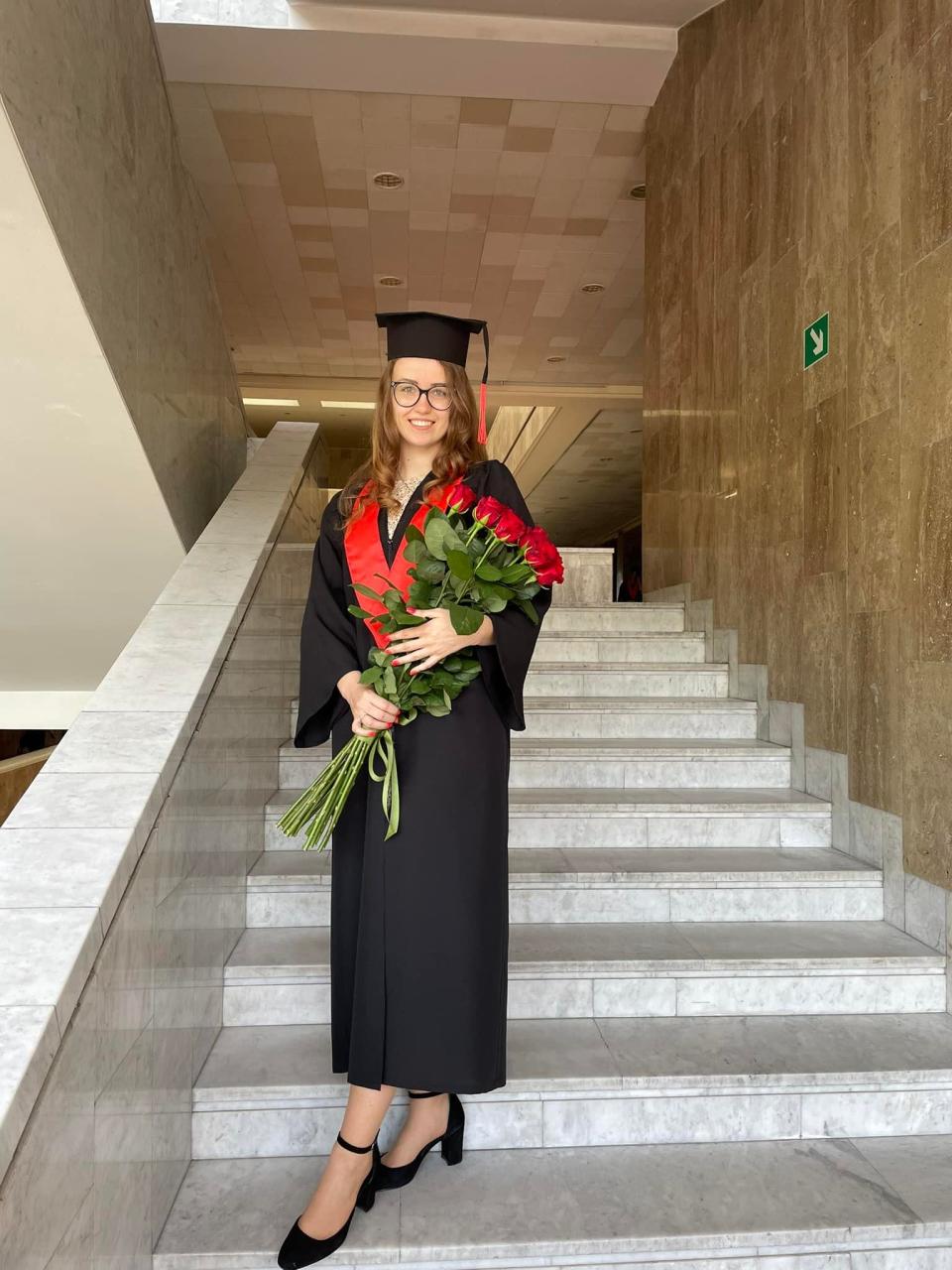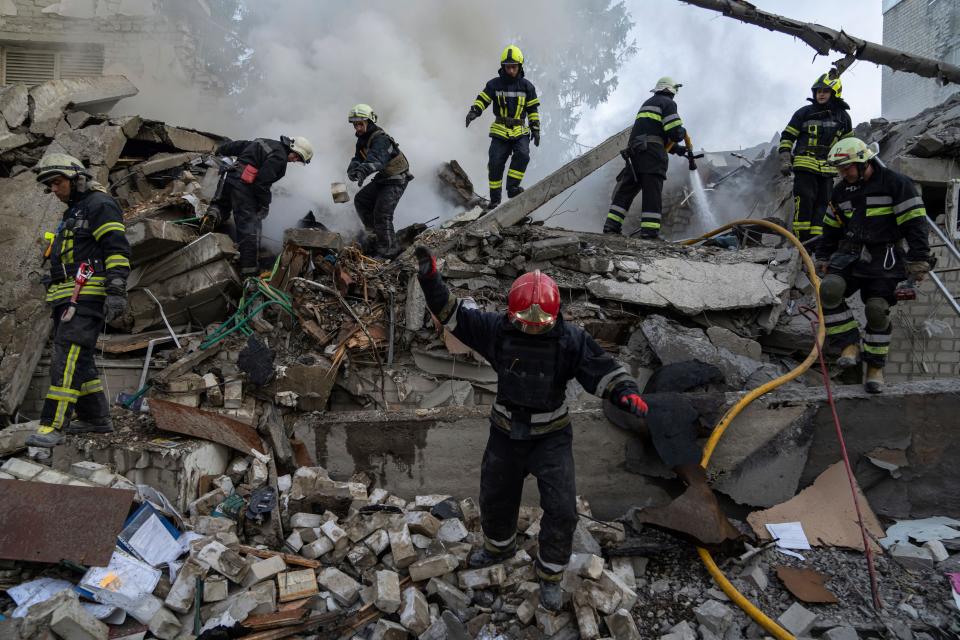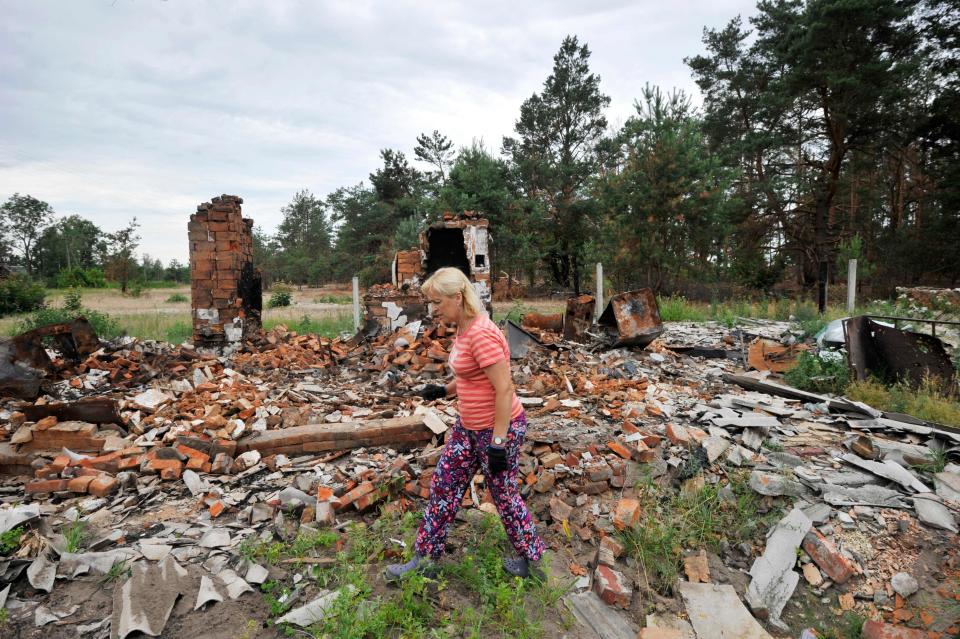Former Apponequet exchange student from Ukraine earns master's in law, sees signs of hope
NEW BEDFORD — "Maybe it's a psychological block," said 24-year-old Ukrainian citizen Kateryna Solodovnyk while trying to recall details of what life was like before returning to Kyiv, where she had been living with her fiancé at the start of Russia's military invasion. Their move back was less than three months ago. "Trying to remember things about back then, I cannot do it because it feels like a year ago."
It was during that period of Solodovnyk's life when The Standard-Times began checking in with the former Apponequet Regional High School exchange student, a little over a week after she and her fiancé fled their nation's capital in the early hours of Feb. 24 as Russia began its attack. Solodovnyk and her fiancé were staying with her fiancé's parents in a village about four hours north of Kyiv, surrounded by occupied territories, when she spoke about the living conditions there at the time, including constant street patrols by volunteer defense forces, taping coverings over windows to minimize risk of being spotted by Russian soldiers, and dwindling supplies of food and other products with no relief in sight.
"Today the place where I lived in Kyiv was bombed. ... I don't know whether my apartment is still ok," she texted in response to a Standard-Times reporter one day in March. "...we could not buy milk - there was [none] left for us. I spent 2 hours in a line for bread."
"Nothing has changed since the last time we talked," she wrote just over a week later. "We are so tired and afraid right now!"
See the latest: Kyiv pounded by Russian missiles; Ukraine blunts Russia's momentum in Donbas: Live updates
'A practical thing'
But since then, much has changed — at least for Solodovnyk and others who benefitted from Russia's withdrawal from the regions around Kyiv. The shift in military focus allowed Solodovnyk and her fiancé to move back to Kyiv in late April. Since then, Solodovnyk says she has returned to work at international law firm Ilyashev & Partners, and last month received her master's degree in international law, with distinction, from the Institute of International Relations Taras Shevchenko at the National University of Kyiv.

"It wasn't that emotional; it was a practical thing," she said of the June 20 graduation. "I just wanted to have all my documents with me, just in case I have to go somewhere, if I have to leave the country."
Solodovnyk's account of her latest academic achievement is reflective of what she says is the new reality many Ukrainians face today — one that straddles the line between recognizing that danger is ever-present, while conversely, citizens grow accustomed to living under constant threat and are trying to move on with endeavors around things like school and work.
"You hear the air sirens and it just makes you nervous. You don't know what's going to happen," Solodovnyk said while describing living back in Kyiv, which USA TODAY reports was attacked by airstrike in June after months of military focus elsewhere. "So you see in Kyiv and big cities the soldiers are on alert about the bombs, attacks from Russians — you still cannot be safe."
Despite this, Solodovnyk says there is a sense that people's everyday needs and regular routines have begun to overshadow the hazards of wartime. "I was in the office yesterday and there was an air siren, and everybody is like 'What do we do?' And somebody says, 'We continue working.'"

Economic vs. physical safety
On the topic of work, Solodovnyk says she is fortunate to be employed, as the country's current scarcity of jobs is forcing some to choose between risking their livelihoods or their lives.
"The situation on the job market is very difficult, so if people have something to do and they get paid for it, they now are stuck with it," Solodovnyk said. "And I guess that in those regions where the Russian troops are now — eastern Ukraine — some people don’t move from there because they have their jobs there and they can earn money.
"If they leave everything there and, for example, come to Kyiv or to western Ukraine ... they will get some support from the government but prices are very high now and it’s not enough."
Look back: 'Threat the whole world is facing': Former Apponequet student in midst of Russia-Ukraine war
When it comes to examples of price inflation since the war, fuel is the first thing that comes to mind for Solodovnyk. "To get gas, you have to stay in four- or five-hour lines and it's only up to 20 liters per person," she said, noting prices have doubled or tripled, and the filling of plastic fuel canisters is prohibited. "Our country doesn’t get that much gas because our seaports are blocked by Russians. Before the war, we used to take gas from Russia and from Belarus. Now we have to reorganize our trading routes."
In the meantime, Solodovnyk says the subway system and taxis are her main modes of transportation. "We don't want to stay five hours in a line and then find out the gas station has run out of gas right before us."
'She was shocked': Mom's abandoned car recovered
Speaking of transportation, back in March, Solodovnyk told The Standard-Times of how her mother — who waited one more day after the invasion began to flee Kyiv — was caught in a crossfire between Russian and Ukrainian soldiers along the way, narrowly escaping on foot after abandoning her car in a field. Luckily, Solodovnyk says, the car has since been recovered, thanks to a stranger's act and the power of social media.
"She was shocked," Solodovnyk said of her mother's reaction after being told her car had been saved. Solodovnyk said after asking around about the car on Facebook, she connected with a man from the area where it was left who had found the car and stored it in his garage in case its owner ever made contact. "We couldn’t believe that it could happen. It was a village where there were battles — real battles."

According to Solodovnyk, the story of the car is an example of the kind of assistance Ukrainians can be seen extending to one another a lot these days. "One thing that I’m very proud about in Ukraine is that people are trying to help each other," she said, noting high participation in volunteer and fundraising efforts, as well as Facebook and Telegram chats where Ukrainians can ask for and offer free help. "And our law firm works pro bono, so we don’t take money — we give free consultation to people who are in need."
Peek into the classroom: 'Your generation's war': How war in Ukraine is shaping New Bedford students' world views
Signs of hope
After Russian military forces withdrew from the regions around Kyiv and the village she was temporarily calling home, Solodovnyk says one of the first encouraging signs of change she remembers noticing was a simple one: "It was like, 'Oh my God! We found bananas in the store!'" she said. "The situation changed and in a few days — maybe 4-5 days to a week — we got everything in our markets: chocolate, ice cream, bread, oil.... It was unusual seeing people smiling in the streets and not afraid."
Solodovnyk says she hopes that the swift improvement of living conditions she saw on a small scale is indicative of the effect an end to the war may have. "When the territory was unoccupied, the situation stabilized very quickly, so I hope that when the war ends, our economy and the whole situation in the country will do the same," she said.
Revisit: Ukrainian exchange student learns American culture firsthand
But for now, Solodovnyk says she and her fellow Ukrainian citizens who are fortunate enough to be in currently unoccupied territories with supply chain access are taking what comfort they can in life's simple pleasures while accepting the burdens that come with the war, and always remembering their fellow citizens are still living under a hostile occupation that can return to their region at any time — not to mention the looming threat of missiles launched from afar.

These things considered, making any major life plans will have to wait, Solodovnyk says.
"I used to think about going somewhere abroad, but now men cannot leave the country," she said, noting that even if she wanted to move by herself, it would be unaffordable with current costs. "Now we're just trying to get back to this normal life, so making day-to-day plans like going to the park or buying ice cream — nothing special, but, even these things are good because a few months ago we were sitting with no light....
"I guess the thing that we are worried about is that the war in Ukraine is going to become the ordinary thing, the ordinary news in the articles. ... We just want to continue talking about it and bring awareness to people all over the world that nothing has changed.... We experience the same feelings, people are dying and we still need support, help and understanding from our international partners, from the whole world."
This article originally appeared on Standard-Times: Former Apponequet student from Ukraine earned master's degree amid war

